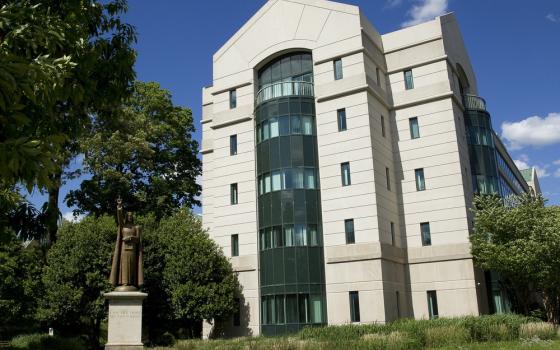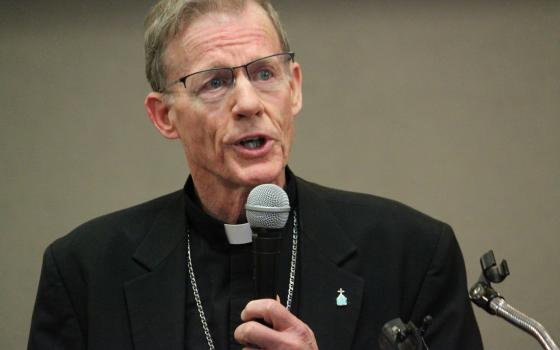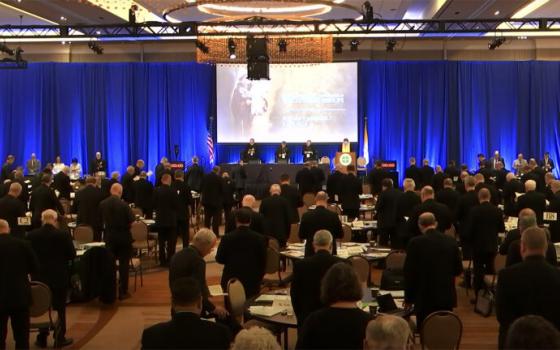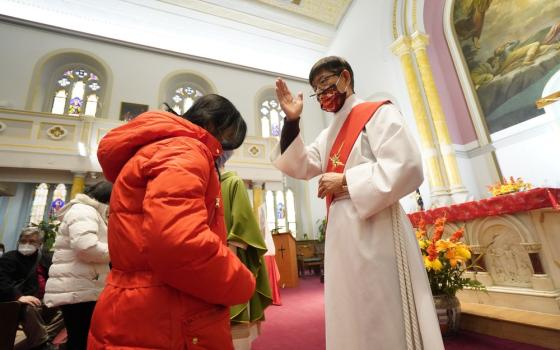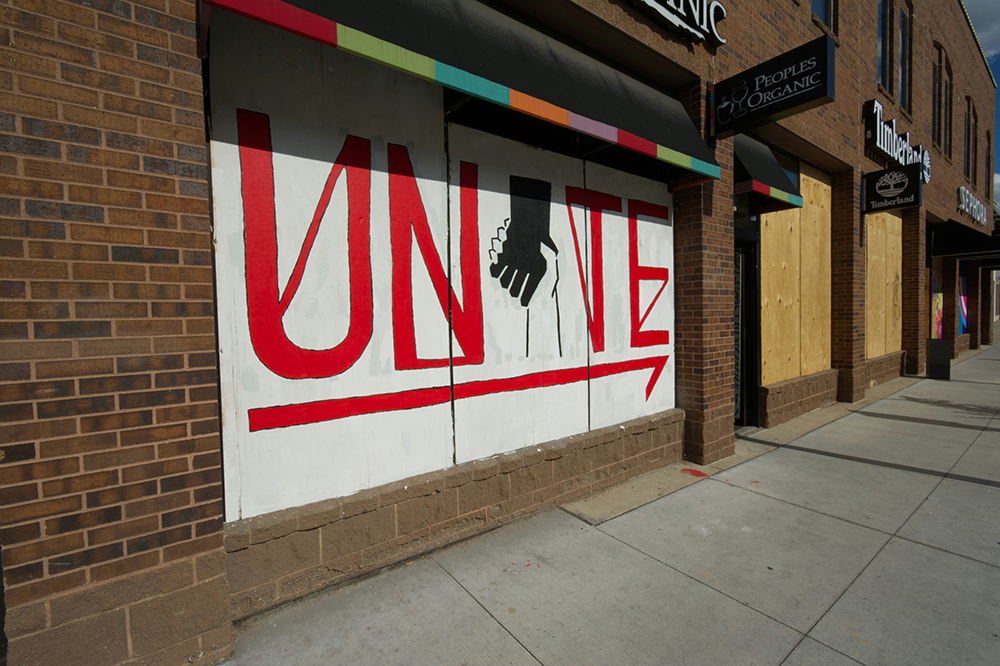
(Unsplash/Priscilla Gyamfi)
Is the Catholic Campaign for Human Development in danger of being dismantled? When I first heard the yet unsubstantiated rumors about the U.S. Catholic Church's organization funding low-income organizing and economic development, my whole life passed before my eyes.
I thought of Paula, the self-described school "cafeteria lady" I met in my first ministry, who saw seven of her students murdered before their 19th birthday. In 1996, she and Massachusetts' Brockton Interfaith Community successfully negotiated with the city's school superintendent to combat youth crime with new afterschool programs. She also encountered newfound respect from educators in Brockton. "I'm not invisible anymore," she told me once.
I recalled meeting a group of Salvadoran immigrants in the Archdiocese of San Francisco while on a Catholic Campaign for Human Development tour. These refugees abandoned their sewing business in 2000 to develop a worker-owned computer repair enterprise. They quickly began to earn more than the archdiocesan staff who accompanied them.
Advertisement
Twenty years later, I encountered a similar story evaluating a Catholic Campaign for Human Development grant for Code the Dream in the Diocese of Raleigh, where campaign-funded students learn to code apps for non-profit organizations. Most, like Cindy, an immigrant from Belarus, drifted from one near minimum wage job to another, until they became software coders. She, like most graduates, now earns far more as a software developer than most of us church ministers.
While writing Beyond Empowerment: A Pilgrimage with the Catholic Campaign for Human Development in 2016, I was blessed to meet Henry, of the Progress Center for Independent Living in the Archdiocese of Chicago, once a popular nightclub singer who could no longer speak normally or walk. After Henry became depressed and increasingly helpless, the Progress Center trained him to become a disability rights advocate. He now patrols the halls of Illinois' capital in a wheelchair meeting with legislators. For my book, he explained the organization's advocacy, saying, "We are just asking for what everybody else is getting. We want to be able to go into a restaurant and sit down at the table with everyone else, and not have a table in the closet where people with disabilities eat."
Although I have encountered innumerable stories like these in over 30 years of lay ecclesial ministry, I occasionally read rumors about the Catholic Campaign for Human Development that are precisely the opposite of what I've experienced.

(Unsplash/Joel Muniz)
The Lepanto Institute, a right-wing advocacy group, has created elaborate conspiracy theories through guilt-by-association arguments that make me wonder what they would have thought of Jesus "eating and drinking with sinners." They accuse campaign-funded organizations of promoting abortions, homosexuality, and birth control — all nonsense. They also overlook one of the most important outcomes of parish participation in community organizations — our faith communities grow stronger, they cultivate more disciples, and stewardship increases.
The truth is that if campaign-funded groups change their policies on abortion, the Catholic Campaign for Human Development quickly blocks future funding, as Faith in Action learned when its president publicly lamented the Supreme Court's 2022 decision in Dobbs v. Jackson Women's Health Organization. But Lepanto's accusations that the Catholic Campaign for Human Development is "Marxist" always confused me the most. What better way is there to promote capitalism than by helping low-income people start businesses?
During the 2010's, campaign funding helped the Democracy at Work Institute double the number of worker-owned businesses in its network. The worker-owners I met, including Marsha, a home health aide in rural Washington State, emphasized not the additional money they made as owners, but the greater dignity of worker-ownership. Moreover, Catholic Campaign for Human Development funding of community organizations promotes the U.S. bishops' teaching document on Catholics' political responsibilities, known as "Forming Consciences for Faithful Citizenship," in a way no church document can, particularly during the time between elections. The organizations serve as a "civics lab" to accompany Catholic teaching on the role of the laity in the public square.
The organizations serve as a "civics lab" to accompany Catholic teaching on the role of the laity in the public square.
The latest Catholic Campaign for Human Development "scandal" involves reports that the campaign promised more money in grants than they had in the bank. In most church organizations, such an accounting error would lead to greater oversight and structural checks and balances, not the dismantling of an effective anti-poverty program.
Sadly, the real scandal is people who do not support the mission of the Catholic Campaign for Human Development using this moment to try to persuade bishops to abandon their over 50-year commitment to the campaign's mission promoting human dignity and respect for life. I trust that enough bishops have experienced the same kind of encounters with the leaders of campaign-funded organizations I have and will stand up to ensure that the church's commitment to these supremely Catholic values continues.




